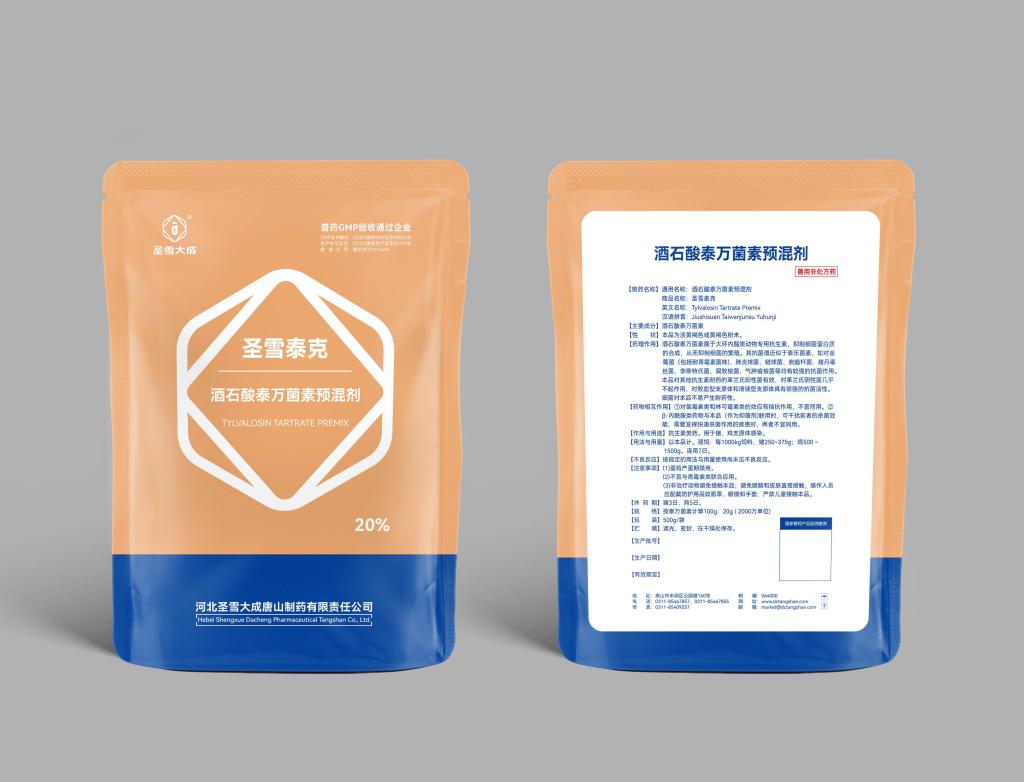Tel:+8618231198596

News
 CONTACT
CONTACT
 CONTACT
CONTACT
- Linkman:Linda Yao
- Tel: +8618231198596
- Email:linda.yao@dcpharma.cn
- Linkman:CHARLES.WANG
- Department:Overseas
- Tel: 0086 0311-85537378 0086 0311-85539701
News
Current Position:
Home >
News
>Veterinary experts advocate for sustainable tylvalosin tartrate premix.
Veterinary experts advocate for sustainable tylvalosin tartrate premix.
TIME:2024-09-11
The Challenge of Antibiotic Resistance
Antibiotic resistance is a pressing issue that threatens both human and animal health. The overuse and misuse of antibiotics can lead to the emergence of resistant strains of bacteria, rendering these drugs less effective over time. In the agricultural sector, this problem is exacerbated by the widespread use of antibiotics for growth promotion and disease prevention. Tylvalosin tartrate, a macrolide antibiotic, is one such compound that requires careful management to ensure its long-term viability.
Sustainable Use of Tylvalosin Tartrate Premix
Veterinary professionals emphasize that the sustainable use of tylvalosin tartrate premix involves several key principles:
Targeted Application: Rather than using antibiotics prophylactically across entire herds, targeted application focuses on treating only those animals that show signs of disease or are at high risk due to specific environmental or physiological stressors. This approach minimizes unnecessary exposure to antibiotics and reduces the selection pressure for resistant bacteria.
Proper Dosage and Duration: Adhering to the recommended dosage and duration of treatment is crucial. Overdosing or underdosing can lead to incomplete treatment, which can promote the development of resistance. Veterinary oversight is essential to ensure that the correct protocols are followed.
Integrated Management Practices: Tylvalosin tartrate premix should be used as part of a broader herd health management plan that includes biosecurity measures, good husbandry practices, and vaccination schedules. This integrated approach not only enhances the effectiveness of antibiotic use but also supports overall herd health and welfare.
Monitoring and Surveillance: Continuous monitoring of herd health and the prevalence of resistant strains is vital. This enables early detection of potential resistance issues and facilitates timely adjustments to management strategies. Surveillance data can also inform the development of evidence-based guidelines for antibiotic use.
Strategies for Sustainable Stewardship
To promote sustainable stewardship of tylvalosin tartrate and other antibiotics, veterinary experts recommend several strategies:
Education and Training: Providing education and training to farmers and veterinary practitioners on the principles of antibiotic stewardship is fundamental. This includes understanding the risks associated with antibiotic resistance and the importance of adhering to best practices.
Regulatory Compliance: Compliance with national and international regulations regarding antibiotic use in agriculture is non-negotiable. Regulations often dictate withdrawal periods and prescribe the conditions under which antibiotics can be used, helping to protect public health.
Research and Development: Investment in research aimed at developing alternatives to antibiotics, such as probiotics, prebiotics, and botanicals, can reduce reliance on traditional antibiotics. Innovations in these areas can offer new tools for disease prevention and control.
Public Awareness Campaigns: Engaging the public in discussions about antibiotic resistance can foster a collective responsibility towards the prudent use of antibiotics. Awareness campaigns can highlight the importance of sustainable practices and encourage support for responsible antibiotic use.
Conclusion
The sustainable use of tylvalosin tartrate premix and other antibiotics is a cornerstone of modern livestock management. By adopting a targeted, evidence-based approach to antibiotic use, veterinarians and farmers can help preserve the efficacy of these critical drugs. Through education, regulation, research, and public engagement, the agricultural community can work towards a future where antibiotics continue to serve their intended purpose without compromising the health of current and future generations. This holistic strategy not only supports the immediate needs of livestock health but also contributes to the broader goal of maintaining the effectiveness of our antibiotic arsenal.
- Tel:+8618231198596
- Whatsapp:18231198596
- Chat With Skype







